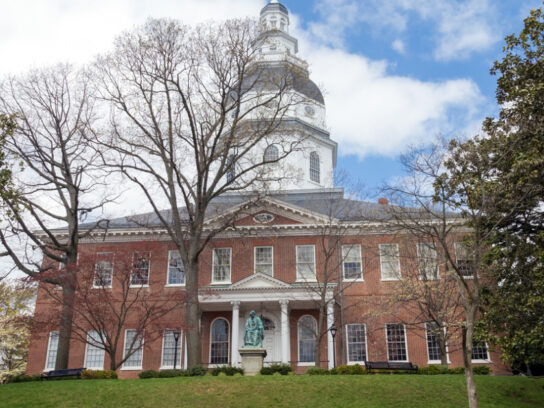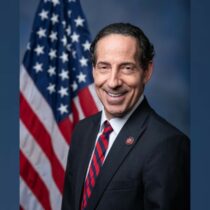
If money could talk, then in the coming weeks, state legislators in Annapolis may spend most of their time talking about money.
The 2025 General Assembly kicks off its 90-day legislative session on Jan. 8. A looming budget deficit will cloud a lot of negotiations and discussions.
The state is facing about a $3 billion shortfall for fiscal year 2026 which begins on July 1. State legislators say closing that deficit is going to be hard.
Facing A Tough Challenge
Some budget analysts say this may be one of the most difficult budget situations the state has seen in about 20 years.
Jump-starting the economy may be tough. The state has made some financial commitments that include the Blueprint for Maryland’s Future which is a 10-year plan to invest in education. The state also wants to reduce its greenhouse gas emissions by 60% by 2031. Maryland also is facing additional costs to fund Medicaid and Medicare and pay for the state’s child care subsidy program.
State Senator Brian Feldman (D-Montgomery County) said, “These are big drivers on the expenditure side of things. I don’t think we can entirely cut our way out of it. Everything is on the table because we have to find a way to get the budget balanced.”
“It’s a significant crisis that we are facing, and it’s going to require a lot of analysis. Meantime, energy costs are expected to jump 15 to 20% in July,” said State Senator Will Smith (D-Montgomery County).
Economic Future
Maryland is one of just 13 states that has a triple-A bond rating. Feldman said whatever choices state legislators make he hopes it will not harm the state’s economic standing.
“How do we do this in a way that does not put our triple-A bond rating in jeopardy, but also makes sure that we right the ship in some way, in terms of moving our economy forward,” Feldman said.
Last January, Maryland Comptroller Brooke Lierman released a report that showed the state’s economic growth initially stalled in 2017. It has been stagnant ever since.
“There is a perception right or wrong that Maryland is not as business friendly as some of our neighboring states. So I think we need to work on that image and attract folks here,” Smith said.
Altering Budget Commitments?
Feldman chairs the Education, Energy, and Environment Committee in the State Senate. He expects legislators may have to adjust some of the state’s current budget commitments such as its promise to transform public education.
“I do anticipate modifications to the Blueprint, as a result of where we sit right now. The investment we made to kindergarten through 12th grade education was an important one. But we do have to take into account reality and timelines. We have to make sure there is accountability for the dollars that are being spent,” Feldman said.
Rainy Day Fund
There has been some talk about the state dipping into its Rainy Day Fund to help with the budget crisis. The Rainy Day Fund currently has about $2.5 billion in it.
“The money is supposed to be used when times are tight. So I hope it is considered. But I would not want to deplete it because we do not know what the future years are going to hold in store for us,” said State Senator Cheryl Kagan (D-Montgomery County).
“There are going to be conversations about fees and taxes, and everybody’s coming up with different ideas. We will see how those conversations go,” she added.
“I’m not against using the Rainy Day Fund, as long as it does not jeopardize our long-term ability to borrow at very good rates,” Smith said.
Change in Washington, D.C.
Some legislators also are concerned the incoming Trump administration could impact Maryland’s economic health.
“Some of the actions the President-elect has threatened would have an enormous impact on Maryland. If the Trump administration moves federal agencies or if it slashes the government workforce then that would have a potentially devastating impact for our economy,” Kagan said.
“The specter of a new administration coming in, threatening to thin out the federal workforce which is the number one employer in Maryland, and in Montgomery County in particular, presents a number of significant challenges,” Smith said.
“However, I think those challenges also open up opportunities for us to be a more resilient and dynamic state moving forward,” he added.
Diversifying the State’s Portfolio
Currently, Maryland receives about $19 billion from the federal government. Some of that money helps fund Metro and other transportation systems. The state also receives federal grant money to help pay for a number of projects.
“We’ve been very dependent on the federal government, and that has served us well during economic downturns, having the federal government in our backyard. But we’re now entering a phase with the new administration. We have not done a great job of diversifying our economic portfolio to bring in more private sector jobs,” Feldman explained.
“We have made some strides, and there are some bills this session that I am going to be involved with to make sure folks like AstraZeneca and other companies stay in Montgomery County. We have some inherent strengths. They are in the life sciences, cyber security, and clean energy,” Feldman added.
Future of FBI Headquarters in Maryland
The state also could experience two more significant jolts to its economy. While the General Services Administration has picked Greenbelt to house a new FBI headquarters, that might not be set in stone. During President-elect Donald Trump’s first term in office, he opposed moving the FBI out of the District. He could renew his opposition once his second term gets under way.
Washington Commanders Stadium
Before its holiday break, the U.S. Senate approved the RFK Stadium land bill. The resolution transfers the land where the stadium sits from the federal government to the District of Columbia. Many speculate the land transfer will open the door for the Washington Commanders to move from Landover to the District once its lease at Northwest Stadium ends in 2027.
Some state legislators remain hopeful the Commanders will stay in Maryland.
“I think it is too soon to read a crystal ball on that. There are negotiations. Our Governor is very engaged in those conversations. As a lifelong burgundy and gold fan, I am hopeful the team will stay in Maryland,” Kagan said.
“There is a memorandum of understanding (MOU) that requires the Commanders to do no harm if the team leaves. The team has committed to redeveloping that area in Landover to make sure it is an economic driver and not just a barren wasteland,” Smith said.
“I think it is a mistake to assume the team is definitely going to D.C. The District has to come up with a plan, and by the way, that involves no federal money. The Senate action does not give D.C. an edge. So this is still going to be a competitive process. Yes, there is an emotional attachment and desire to bring the Commanders back to D.C. But that, in and of itself, does not pay the bills,” Feldman said.
Other Bills, Improving Elections
While money issues and energy policy will likely dominate the 2025 legislative session, Feldman said state legislators will introduce between 2,000 and 3,000 bills for lawmakers to consider.
Kagan has worked on more than two dozen bills. One issue she has worked on is to improve elections in Maryland.
“We have excellent elections but there are always ways of making them more efficient, more transparent, and more inclusive,” Kagan said.
Feldman said a proposal that passed the Senate last year but failed in the House of Delegates would create special elections when State House or Senate positions become vacant. Currently, when a vacancy occurs, a locally elected central committee recommends a replacement. The name is then forwarded to the Governor for his approval.
The proposed bill would allow voters to decide to fill vacancies instead of having political appointments. Feldman is cautiously optimistic both chambers will approve the legislation this time. If that happens, a referendum could appear on the 2026 ballot since a move to create special elections requires a constitutional change.
Expanding 911 Services
Meantime, Kagan said she is continuing her work to expand and improve 911 services in the state, and get a 311 service off the ground that will be powered by Artificial Intelligence.
“I’ve spent the last 10 years working to upgrade our 911 systems around the state and we are now at the forefront of the next generation 911. We just launched a 911 specialist work group to see how we can better support our 911 workers who save lives and property every day,” Kagan said.
Immigration and Housing Affordability
Smith said some other big issues will likely come up during the legislative session. Those include immigration and housing affordability. President-elect Trump has vowed to deport millions of undocumented immigrants living in the country. Smith said some industries across Maryland depend on migrants to fill jobs. He said those industries will face hardships if the federal government drives out immigrants.
Feldman said the Governor has an affordable housing bill that will come to his committee.
“The issue is we don’t have enough housing in the state, and so we need more supply. So how do we generate supply? The issue with affordable housing is it tends to create tension between the state and local governments. There’s always pushback when the state tries to dictate how local governments utilize land and land use. The politics of affordable housing also differs from county to county, and even within counties,” Feldman said.
Cost of Living
The three-term Senator said one theme he believes will emerge from this legislative session will be looking at the cost of living in Maryland. That could include an examination of tax policy or the costs of housing and energy. He said the ‘big picture’ debate over the next couple of years will be deciding what policies the legislature can enact to retain the talent that exists in the state, make sure Maryland keeps its businesses here, while also attracting new businesses.


Comments are closed.